What is Caffeine Insomnia and How to Prevent It
When most people hear the word “caffeine”, they automatically think of coffee. And while coffee is one of the most popular caffeinated beverages with over 2 billion cups drunk worldwide every single day, plenty of other drinks also contain caffeine. Tea, sports drinks, soda, and energy drinks are some of the most popular.
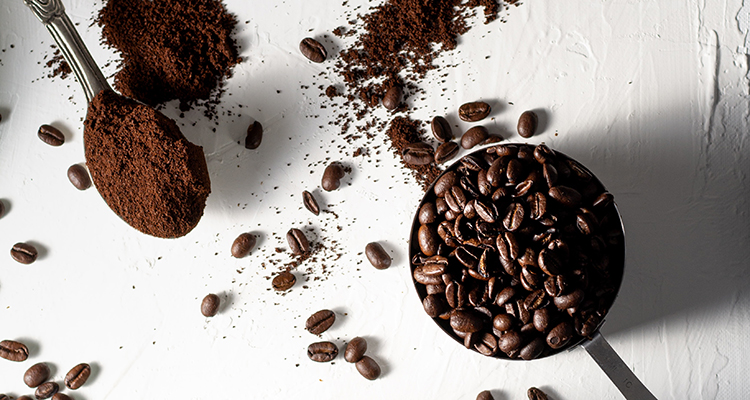
While caffeine works well when you’re in need of a quick pick-me-up, it can also have negative impacts on your health and sleep patterns. Most people don’t realize that caffeine is actually a drug. It’s found naturally in the seeds and leaves of certain plants but is also artificially produced and added to different foods and drinks. What makes caffeine a drug is how it interacts with your central nervous system. By doing so, it causes increased alertness.
In this article, we’ll take a closer look at the effects of caffeine on the body, including how and why caffeine consumption may cause insomnia plus insomnia treatment options.
Content
How Does Caffeine Work?
You already know that caffeine is used by billions to help start their day or overcome that afternoon slump. When consumed, caffeine acts as an adenosine receptor antagonist inside your body. Adenosine is a compound that promotes sleepiness. By blocking these receptors, caffeine prevents you from feeling tired. Caffeine also goes to work rather quickly, reaching its peak levels just 30 to 60 minutes after consumption. It also has a half-life of up to 5 hours. That means that it takes several hours for caffeine to reduce to half its strength inside your body. The other remaining half of the caffeine can linger much longer than this.
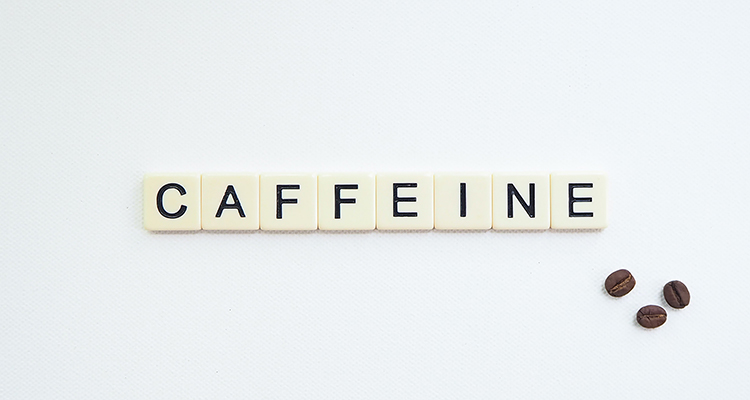
The average American consumes 300 mg of caffeine every day, which is nearly 3 times higher than the world average. As you probably guessed, coffee accounts for more than 50% of the world’s caffeine consumption with tea coming in at a close second. Caffeine is so popular thanks to its many positive effects, but as with any “drug” or substance, there are pros and cons to caffeine use.
Pros
The main positive effects of caffeine are alertness, increased mental performance, improved reaction times, and a better overall mood. A sufficient dose of caffeine is between 50 and 200 milligrams. As with any drug, the higher the dose, the more potent the effects. Over time, you can also develop a tolerance to caffeine, which means it won’t have the same effect and you’ll need to consume increasingly larger amounts to achieve the same stimulating results.
Cons
The biggest drawback to regular caffeine use is how it negatively affects your sleep. Because caffeine is a stimulant, consuming large amounts too late in the day can make it difficult to fall and stay asleep or achieve quality sleep. One study also suggests that caffeine may interfere with your body’s natural sleep-wake cycle (circadian rhythm), reducing your total sleep time. In some cases, caffeine prevents you from ever falling into a deep, restorative sleep.
While most people start their day with a cup of coffee or tea, drinking caffeinated beverages as much as 6 hours before bed could actually disrupt your sleep patterns, which is why an afternoon cup of Joe could mean a restless night of sleep. Older adults are at particular risk since it takes their bodies longer to process caffeine.
Consumed in high doses, caffeine can trigger a long list of negative physical side effects including:
- Increased heart rate and breathing
- Muscle tremors
- Nausea and diarrhea
- Sweating
If you decide to reduce your caffeine consumption, you may also experience withdrawal symptoms. Remember, caffeine is a drug and over a long period of time, your body becomes dependent on it. Without it, you may experience extreme fatigue, headaches, low energy levels, and mood swings.
While caffeinated beverages are most popular, companies are also producing and selling pure caffeine powder. Adults and even teens are using this powder as an alternative for sleep and to enhance performance and lose weight. This is a dangerous tactic because caffeine powder is highly potent. It’s also difficult to measure a safe serving size at home, putting users at risk of overdosing.
Caffeine and Sleep
We’ve already covered some of the basic pros and cons of consuming caffeine. While some users experience unpleasant physical side effects after long-term use or when reducing their caffeine intake, its effect on sleep is by far its most notable characteristic. This makes sense since most people consume caffeine to keep sleep at bay. The problem is, this method of staying awake and warding off sleepiness can backfire.
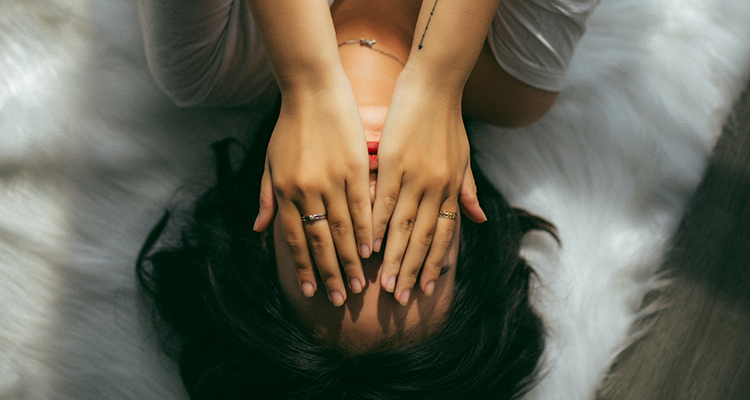
Caffeine can reduce your sleep time, impact the onset of sleep, and also affect the efficiency of your sleep and satisfaction levels. Studies suggest that caffeine significantly reduces the duration of slow-wave sleep, which is the deepest most restful period. It’s during slow-wave sleep that your body restores itself so you can wake in the morning to feel alert and refreshed. Reducing this period of sleep can leave you feeling sluggish and foggy. It may even overlap into the next day, leading to sleep deprivation. Symptoms include trouble remembering things, difficulty processing information or solving problems, and mood swings.
Caffeine is used to not just boost energy levels but also increase cognitive function in most people. Caffeine can’t undo the harm caused by long-term sleep deprivation or extreme fatigue. It’s important to remember that caffeine offers short-term benefits but shouldn’t be used as a substitute for deep, restorative sleep that your body needs to function properly and efficiently. Caffeine’s stimulatory properties also affect every individual differently. Caffeine’s arousing benefits may help someone feel sleepy or groggy but may cause restlessness, anxiety, dependency, and over-arousal in someone who’s already alert.
In rare cases, caffeine may also act counterintuitively by causing some people to feel more tired rather than more alert. Regular caffeine use and disruptive sleep often create a vicious cycle of unhealthy sleep patterns and behaviors. Caffeine use can cause sleep deprivation, which then causes excessive sleepiness the next day. This may trigger a desire to consume even more caffeine to mitigate your fatigue. No amount of caffeine can correct sleep deprivation, but it can make it increasingly difficult to fall asleep at night. Over time, consuming caffeine may not have the same desired effects with users feeling tired instead of aroused. Sleepiness is also a common withdrawal symptom of caffeine abstinence. This is common among regular coffee drinkers that wake to feel groggy and don’t feel fully awake until they’ve had their coffee.
Recommended Caffeine Dosage
If you’re suffering from caffeine insomnia, the good news is, you don’t have to swear off your favorite foods and drinks forever. You just need to find a healthy balance that works for your lifestyle without interrupting your sleep patterns.
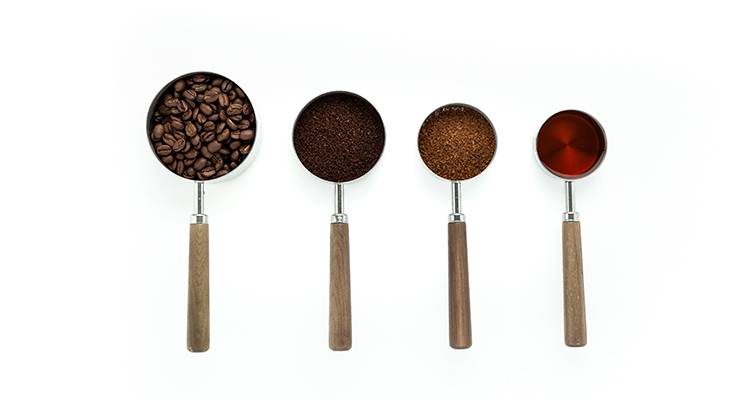
According to the FDA (Federal Food and Drug Administration), it’s safe to consume about 400 milligrams of caffeine per day. That equates to 4 or 5 cups. But keep in mind that a large cup of coffee from your favorite store may contain as much as 470 milligrams, exceeding the daily recommended dose. You also need to consider your metabolism and how quickly you process caffeine before deciding on a healthy dose.
Signs that Caffeine is Affecting Your Sleep
Do you suspect you’re suffering from caffeine insomnia? While sleep troubles manifest in countless ways from grogginess and mood swings to difficulty remembering things, there are some specific signs to look for when discussing caffeine insomnia.
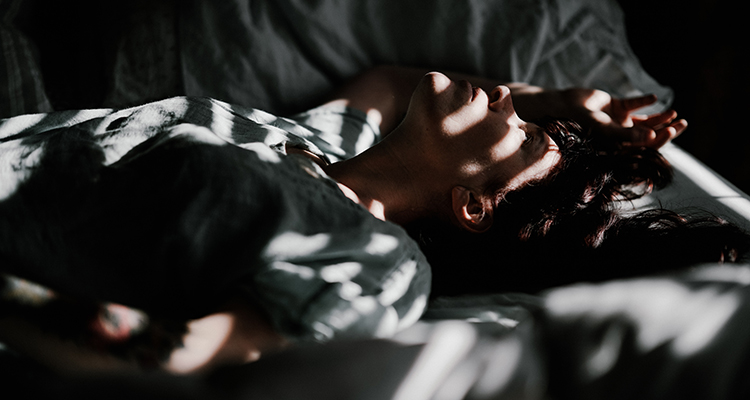
If you drink caffeine regularly and are experiencing headaches, anxiety, and excessive sleepiness, your favorite coffee, tea, or other beverage may be to blame. These are all signs of caffeine dependency caused by overuse. Other signs include waking up frequently during the night, difficulty falling asleep, and nighttime anxiety, racing thoughts, or nightmares. Because caffeine makes you feel alert and aroused, your heart rate also increases and you may find yourself feeling anxious or paranoid. If you drink caffeine during the day in an attempt to combat your sleepiness but experience no arousing effects, it may be a sign of sleep deprivation due to caffeine use. If this is the case, it’s time to swap those energy drinks for a quality night’s sleep!
Tips for Overcoming Caffeine Insomnia
Dealing with caffeine insomnia doesn’t mean swearing off all caffeinated foods and drinks forever. In fact, doing so abruptly could cause some pretty serious physical withdrawal symptoms. Instead, try a few of these tips for reducing your caffeine dependency and promoting quality sleep.
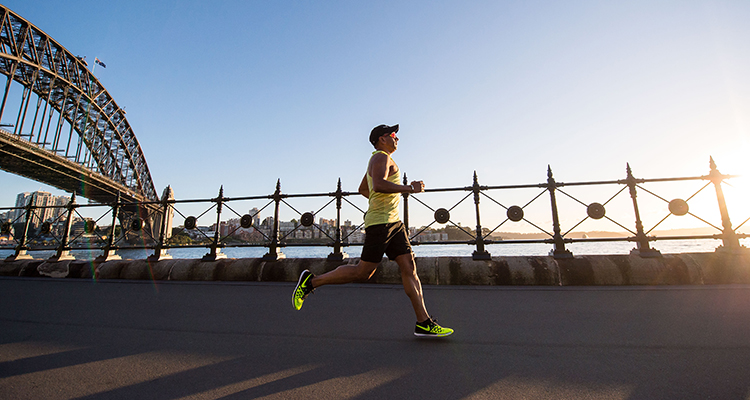
Avoid Caffeine 6 Hours Before Bed
It can take your body a long time to fully process caffeine and for the effects to subside. That’s why it’s recommended you stop consuming caffeinated products six hours before bed. If you go to sleep at 9:00 p.m. every night, you shouldn’t have any caffeine after 3:00 p.m. This gives your body plenty of time to process any caffeine consumed during the day and for the arousing effects to wear off. Swap your tea for a decaffeinated variety or, better yet, chamomile tea which is said to act as a mild sedative and induce sleep.
Find Natural Ways to Boost Energy
It can be difficult to kick a caffeine habit or dependency – especially if you rely on coffee to give you a much-needed energy boost. One way to reduce caffeine consumption and prevent caffeine insomnia is to find natural ways to increase your energy. The best and most effective tactic is exercise! Exercise not only gives you more energy but also boosts your mood and makes it easier to fall and stay asleep at night.
Smoking cigarettes and drinking alcohol in excess can deplete your energy levels, so try to avoid these unhealthy behaviors. Stress can also cause a dip in energy, mood swings, and insomnia. By reducing stress with activities like meditation or yoga, you’re not only improving your mental state but also increasing energy and promoting better sleep.
Follow a Healthy Sleep Routine
We all live by some type of schedule. We wake up around the same time each day. We have breakfast, maybe hit the gym, go to work, and socialize with friends. Without a routine or schedule, you’d be wandering aimlessly through life without direction or purpose. The same can be said for your sleep routine.
Your body thrives on a set schedule. Help keep your internal clock healthy and working efficiently by creating a sleep routine. This should include relaxing behaviors like listening to soft music, taking a warm bath, or journaling. Avoid using digital devices and screens about 60 minutes before bed. The blue light from these electronics prevents your brain from releasing the sleep hormone melatonin. By performing the same behaviors around the same time each night, your body and brain will fall into a healthy rhythm, preventing insomnia and other sleep disturbances.
Create a Welcoming Sleep Environment
Your sleeping environment is just as important as your sleep habits. Your bedroom should be a welcoming place for peaceful rest. Eliminate all distractions and stressors. Invest in quality bedding and a supportive mattress. Reduce noise with a sound machine or added insulation. You can block out unwanted light using room darkening shades or a sleep mask. Avoid lying in bed too long awake or using your bed for tasks such as work or eating. When you do other things in your bed besides sleep or sex, it confuses your mind into thinking it’s ok to be awake in bed. By getting up and performing relaxing behaviors when you can’t sleep, it helps strengthen the connection between your bed and sleep. When you feel tired enough to fall asleep, you can return to bed. Be sure to keep the lights dim and your activities calm and quiet so you don’t become too aroused.
Finding a Balance Between Caffeine and Quality Sleep
You don’t have to choose between your favorite caffeinated beverage and a good night’s sleep. You do, however, have to make sure that your caffeine consumption isn’t causing dependency or insomnia. If you’re trapped in a vicious cycle of sleep deprivation and caffeine consumption, we can help. Somnus Therapy offers a variety of treatment and therapy options to help address your specific sleep troubles.
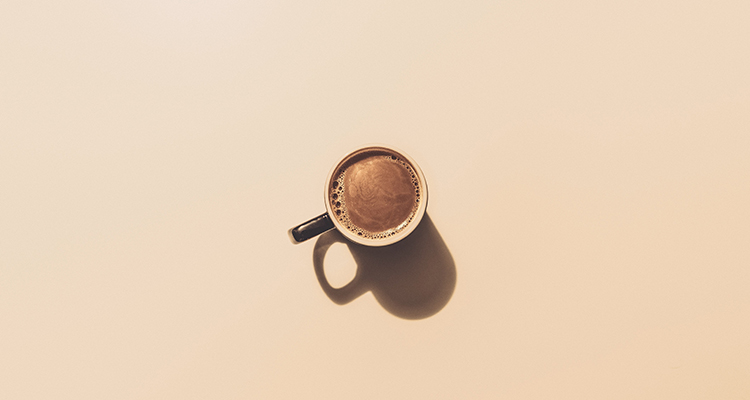
Click here to get started on your journey to blissful sleep today.














